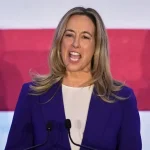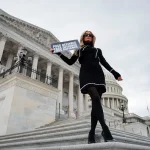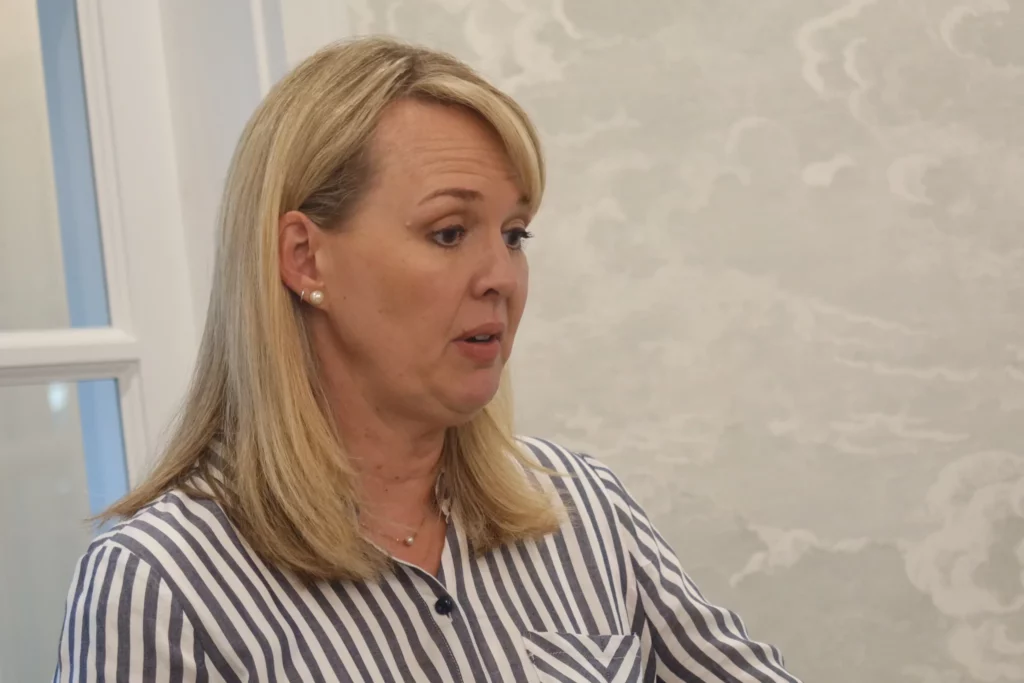
MESA, Arizona — Julie Spilsbury, a councilwoman in Mesa, said it was August when she decided to break assumptions that, as a Republican and person of faith, she would be voting for former President Donald Trump.
Spilsbury, 47, a lifelong member of the Church of Jesus Christ of Latter-day Saints, said her religion led her to not only support Vice President Kamala Harris this cycle but also to speak publicly about it.
“I’m trying to help people realize there’s another option, and that it’s OK to vote differently than maybe you always have, or how you think you’re supposed to,” Spilsbury said in an interview with the Washington Examiner.

Salisbury acknowledges she is a minority voice in her community, which largely supported Trump in 2020. However, she represents a sizable share of Mormon voters who could decide the presidential election in Arizona, a battleground President Joe Biden won by three-tenths of a percentage point.
The mother of six is trying to make the case that Trump does not align with the church’s values. Even though there are some matters on which she disagrees with Harris, specifically regarding abortion, she is able to look past it.
“My message is that our country can get over bad policy, but it can’t get over bad character,” she said. “The political discourse right now, not helpful — nothing will get done. We’ll never be able to come up with great solutions to really hard problems when you view everyone as your enemy.”
“To me, those are the Christ-like attributes that I think are important and that I know because of my religion. I’m not doing it in spite of my religion. I’m doing it because of my religion,” she added.
Spilsbury said she voted for Trump in 2016 but ultimately voted for Biden, silently, in 2020. She said that during this cycle, she no longer felt the need to keep her decision a secret.
“To make the jump from Trump to Harris is still pretty shocking for people,” she said.
Dueling yard signs reveal division in tight-knit community
Spilsbury and her husband, Jeremy Spilsbury, displayed a “Republicans for Harris-Walz” sign in their yard as they became more outspoken about their support.
A couple of days later, they noticed their neighbors across the street, who have Trump flags and signs in their yard, added a new one with an offensive word: “Cucks for Harris.”
“I didn’t even know what that meant — I had to Google it. It’s extremely derogatory,” Julie Spilsbury said.
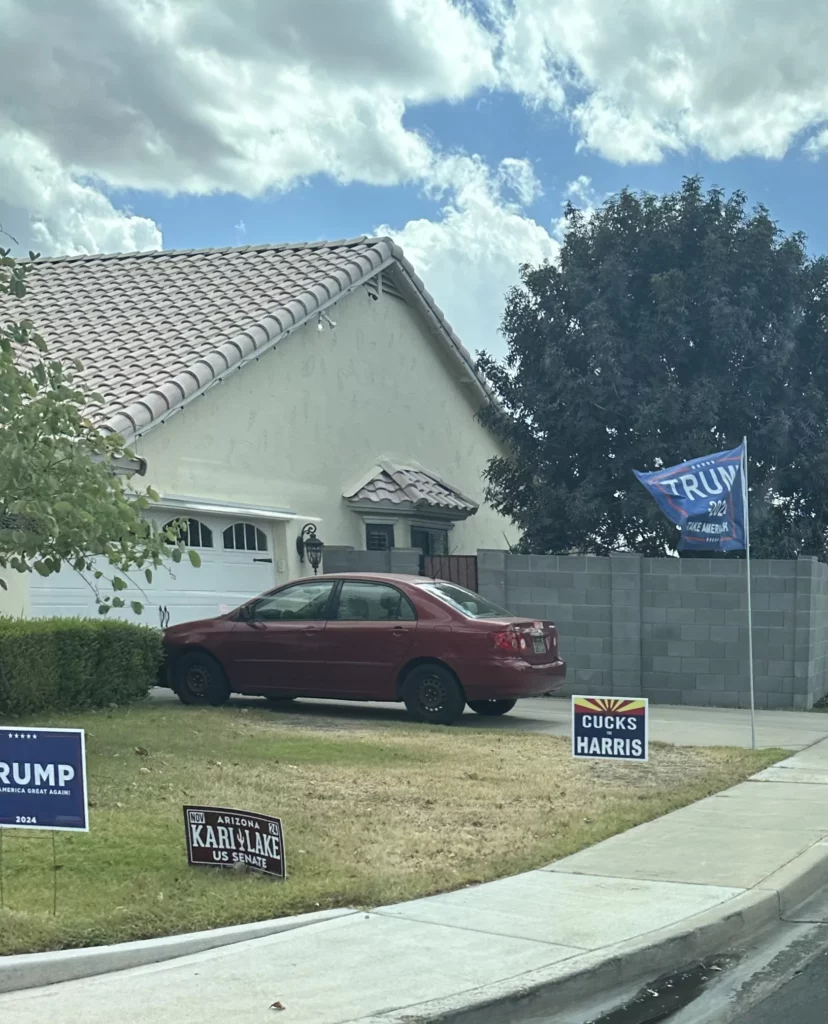
According to the Merriam-Webster Dictionary, a “cuck” is “often used as an insulting and contemptuous term for a man who has politically progressive or moderate views.”
The word also has a sexual meaning related to a man whose spouse or partner is unfaithful.
Jeremy Spilsbury, who has a degree in peace and conflict studies, went across the street to speak with the neighbors after he saw the sign.
“They told him they were offended by our sign, so they put up their sign,” he explained. “Our sign says ‘Republicans for Harris.’ At its core, it’s not offensive, but they were offended by that.”
“They told us we should just put up a Harris-Walz sign and not a Republican sign, and we were like, ‘Well, that’s the important part.’ I’m trying to help Republicans, especially LDS people, know that there’s another choice,” Jeremy Spilsbury said.
Tensions rose in recent weeks after Julie Spilsbury’s councilwoman colleague, who is a Democrat, posted her picture along with Mesa Mayor John Giles after a “Republicans for Harris” event.
“I haven’t posted it on Facebook a lot because I pick my battles. It was so bad,” she said. “Every single one of the bad comments that was attacking me was LDS, every single one of them.”
“After two hours, I went back to look at it, and she had taken it down. She texted me apologizing, saying she had no idea people would attack me personally,” Julie Spilsbury explained. “She doesn’t belong to a religious faith, so she doesn’t understand. This is my community, these are my people that I am surrounded by in everything I do, and they are so mad at me.”
Julie Spilsbury said there are families that will not speak to her as a result of her political views.
“At our very core, we want to belong to something, and when you go against your community, you all of a sudden don’t belong. And it’s painful. It’s really hard and really painful, but it’s important for me,” she said.
The influence of Arizona Mormon voters
There are nearly 450,000 members of the Latter-day Saints in Arizona, who make up about 6% of the state’s population. According to the Pew Research Center, Mormons were the most Republican-leaning religious group in the country, but in 2020, Biden won 18% of their vote, according to exit polling from the New York Times. As a result, the defections helped Biden flip the state blue by just 10,457 votes.
Spilsbury and other members of the Latter-day Saints community have become involved with “Republicans for Harris,” working to reach other registered Republicans who the campaign believes could be swayed to vote for her.
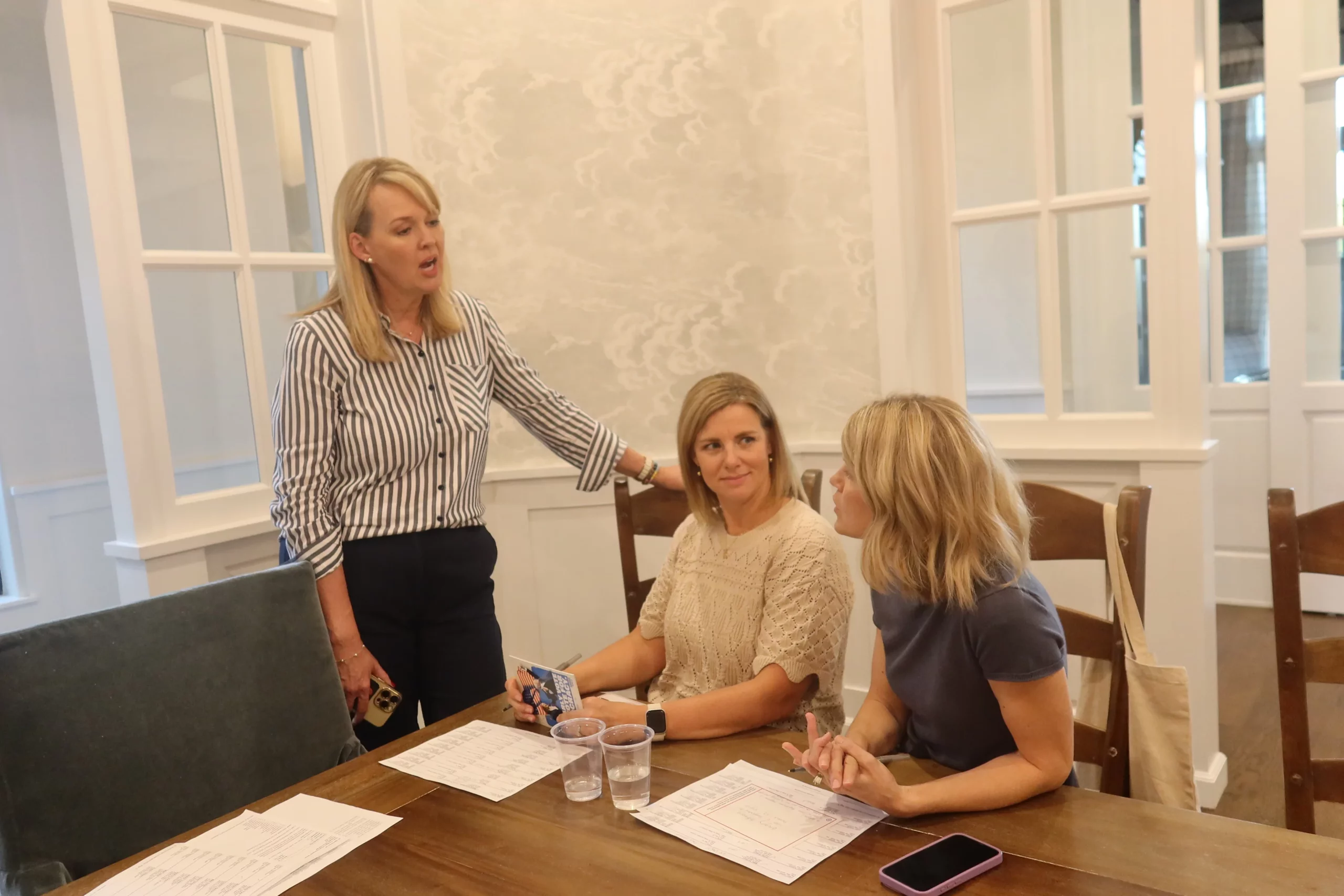
Gathered around a dining room table in Mesa on Oct. 8, Julie Spilsbury was joined by Rachel Albertsen, another member of the church who lives in Gilbert and voted for former U.N. Ambassador Nikki Haley in the primary. Albertsen said she believes there are signs that the Latter-day Saints community isn’t completely on board with Trump.
“From the small circle that I have, it feels like most people that are registered Republican are really worried, saying, ‘Oh, I wish we had a different candidate, or it’s very unfortunate that it’s Donald Trump.’ You can tell that not everybody is super MAGA in the Republican Party — but it doesn’t seem like his character issues are enough to sway the whole party,” she said.
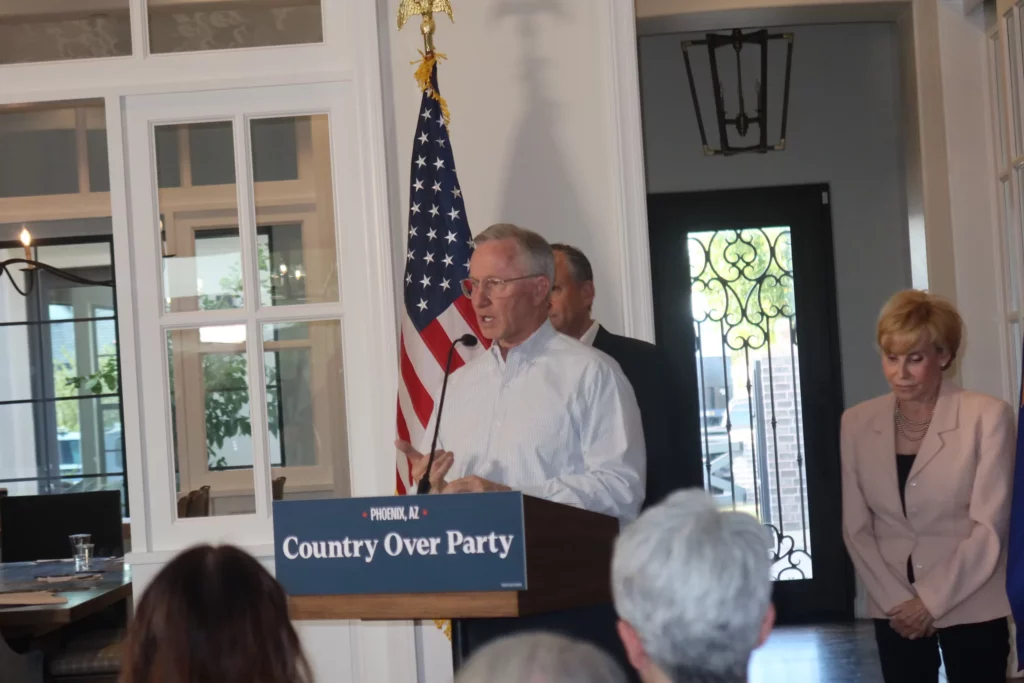
Giles has become Arizona’s most prominent pro-Harris Mormon to speak out. He appeared at a press conference in early August in Phoenix to launch a new Republican task force for Harris. Giles also addressed the Democratic National Convention in Chicago in August.
Giles admitted his community leans more Republican, but this cycle, he feels there could be even more than 18% of people that break away and vote for Harris.
“I do sense a shift, particularly among younger voters and women in the LDS community — I mean, it’s going to be so tight in Arizona that every community, every constituency, the margins could literally decide it,” Giles said in an interview with the Washington Examiner. “I do think this effort is going to bear fruit.”
Harris and Trump step up their Latter-day Saints outreach
Both campaigns are courting Latter-day Saints’ support in the state, launching efforts to target these voters ahead of the election.
Harris’s Arizona campaign announced in early September that it was launching a Latter-day Saints advisory committee, which included current and former Republican elected officials. A couple of weeks later, former Arizona Republican Sen. Jeff Flake, another prominent Mormon, endorsed Harris—a point second gentleman Doug Emhoff highlighted at a “Republicans for Harris” organizing event in Mesa on Oct. 8.
“Your former senator, Jeff Flake, endorsed Kamala as well, as he said there’s nothing more conservative than putting country over party,” Emhoff said to applause.
“I know there’s a good number of LDS members here, too, and I wanted to thank you as well for recognizing the values Kamala brings,” he added.
Giles introduced Harris at an event in Scottsdale on Oct. 11, at which Republicans and independents gathered, standing in front of a “country over party” banner. Harris appealed specifically to Republican Mormons in the group, noting that her pastor spoke at the church president’s 100th birthday.
“I think on the fundamentals, we have more in common than what separates us, including across faiths,” Harris said.
On Oct. 8, Trump’s campaign announced a “Latter-Day Saints for Trump” coalition that included Rep. Andy Biggs (R-AZ) and Pinal County Sheriff Mark Lamb, who lost a Senate primary against Republican Kari Lake earlier this year.
Ahead of a rally in Prescott Valley on Oct. 13, he held a roundtable with Latter-day Saints leaders and told them that support among the voting bloc was critical to his reelection in Arizona and Nevada.
“If we can pick up an extra point or two points, and the Latter-day Saints are going to have a lot to do with that,” Trump said during the roundtable, according to the Arizona Republic. “It makes us pretty much unbeatable in those states, and that’s why we’re here.”
Trump called into an “LDS 4 Trump” Zoom meeting, organized by Arizona supporters on Oct. 13, and described church members as “God-fearing American patriots” and emphasized that he shares their values.
“All of us are united around the basic belief that faith in God, and our Judeo-Christian values, are essential to healthy American society,” Trump said during the 10-minute call.
Latter-day Saints Republicans dispute drift away from Trump
While some Latter-day Saints have aired concerns about Trump, many in the traditionally Republican group are sticking with the GOP presidential nominee.
Jared Taylor, the chief executive of Heritage Academy Schools, said the division within the church should be “downplayed.”
Taylor, 51, who lives in Gilbert, said he will be voting for Trump and believes the majority of the Latter-day Saints community will, too.
“There’s a few vocal minority people, and they get a lot of press, and it’s way overstated,” said Taylor, a father of three daughters. “Their beef is all about personality. They want to make out Trump to be this monster, which he is not, and it’s identity politics. They’re not looking at policies, because when you compare the two candidates on policy, I just believe life was better under Trump, it’s just that simple.”
Victor Petersen, the general manager of a construction company in Gilbert, relayed a similar message. The father of five said his vote comes down to pocketbook matters.
“I have a large family. I have five children that I have to provide for, and just grocery bills have gotten so terrible,” Petersen said. “My wage adjustment has not at all kept up with inflation.”
“Under Trump, I felt like I was gaining ground, and now, it’s completely flipped the other direction – from groceries to fuel to just pretty much anything,” he said.
Petersen said he is grappling with the perspective of Latter-day Saints who are supporting Harris.
“I struggle to understand how people care more about what people say than what they do. And even if you go with what they say, I certainly agree more with, you know, the policies that are being at least proposed by President Trump,” he said.
The 46-year-old believes the election will be one of the most important of his lifetime, pointing to efforts from the Biden administration to “stifle opposing views,” specifically regarding the COVID-19 vaccine.
“So many where people were literally silenced and not allowed to speak because it was dangerous misinformation. But it turned out those people who disagreed were right that the vaccine wouldn’t prevent the spread of the virus. You could still pass the virus on even though you had been vaccinated,” he said. “I see this could be very dangerous and hard to recover from if those basic First Amendment rights continue to be eroded.”
Power of ‘East Valley conservative mothers’ put to the test
Julie Spilsbury still identifies as a Republican, but the possibility of Trump taking office has given her a sense of feeling “politically homeless.”
“There’s so much data and statistics that show that the Maricopa County vote was swayed by the East Valley conservative mothers that didn’t vote for Trump last time — that we swung Maricopa County, which swung Arizona, which swung the nation,” she said.
When I was in Arizona, I met Julie Spilsbury, a lifelong Republican member of the Church of Jesus Christ of Latter-day Saints. She told me she was terrified to record this ad in support of @RubenGallego, but decided to do it anyway because she felt it was the right thing to do. pic.twitter.com/WaAYgglLGP
— Samantha-Jo Roth (@SamanthaJoRoth) October 18, 2024
Those stats are not lost on Democrats, specifically Rep. Ruben Gallego (D-AZ), who is running for Senate against Lake. The Arizona congressman reached out directly to Julie Spilsbury earlier this year.
“He was literally was like, ‘Hey, I need to know you,’ and I didn’t love him,” she explained. “I had a couple of experiences, and I wasn’t super impressed, but I gave him a chance, and he’s changed my mind.”
CLICK HERE TO READ MORE FROM THE WASHINGTON EXAMINER
With weeks to go until the election, Julie Spilsbury hopes that by speaking out publicly, she could lead other Latter-day Saints to question their decision. She felt so strongly that she filmed an ad in support of Gallego that began airing across Arizona on Thursday.
“It’s really hard to know if I’m making a difference or if anyone is changing their mind. But, again, I know a lot of people who have thanked me for speaking out and for helping people realize there’s another option,” she said.

